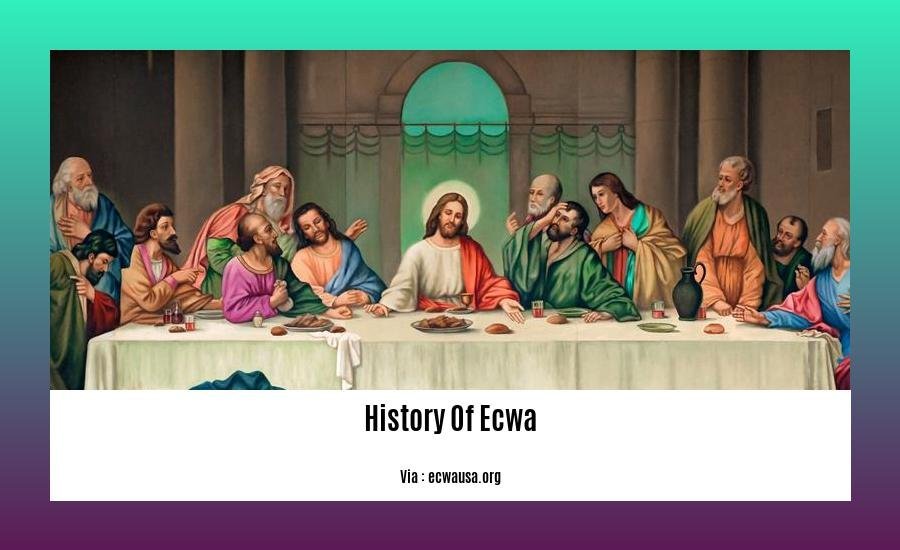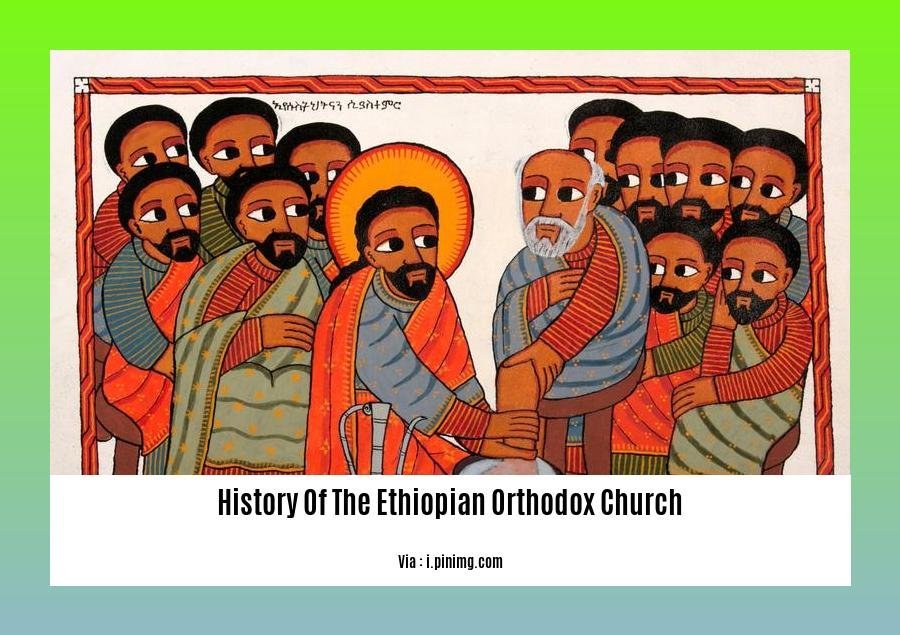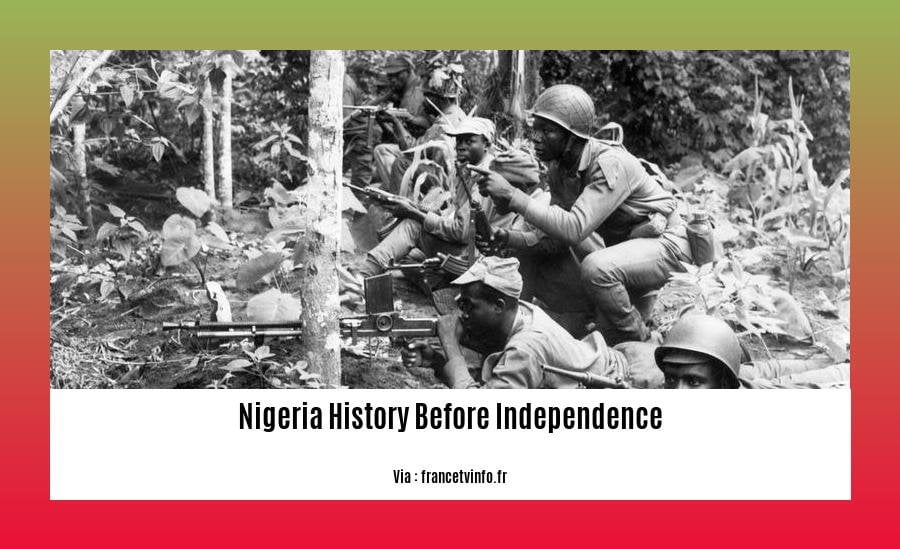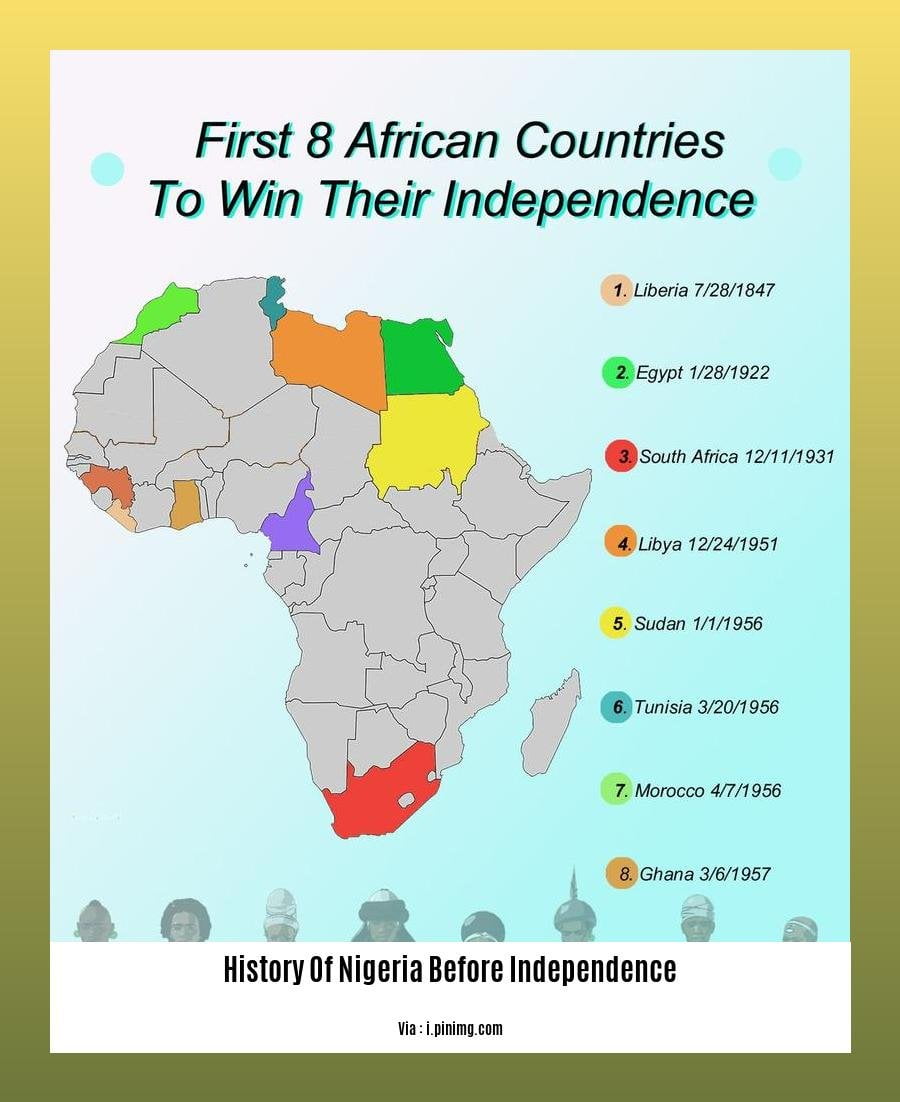Embark on a captivating journey through the annals of the Evangelical Church Winning All (ECWA), a vibrant Christian movement that has indelibly shaped the religious landscape of Nigeria and beyond. From its humble beginnings to its remarkable growth, ECWA’s story is a testament to the power of faith, resilience, and the unwavering commitment to spreading the gospel. Join us as we unveil the untold narratives and explore the profound impact of this dynamic church on individuals, communities, and the nation at large in our exclusive article, “Unveiling the History of ECWA: A Journey of Faith and Transformation”.
Key Takeaways:
ECWA was founded in 1954 as a union of SIM-related churches in Nigeria.
ECWA is one of the largest Christian denominations in Nigeria with an estimated 10 million members and 6,000+ congregations.
ECWA is a partner church of Serving in Mission (SIM), formerly Sudan Interior Mission.
ECWA established various educational institutions, including 3 theological seminaries, 8 Bible colleges, and 15 theological training institutes.
ECWA emphasizes evangelism and missions through its Evangelical Mission Society, which sends out over 2,000 missionaries worldwide.
History of ECWA
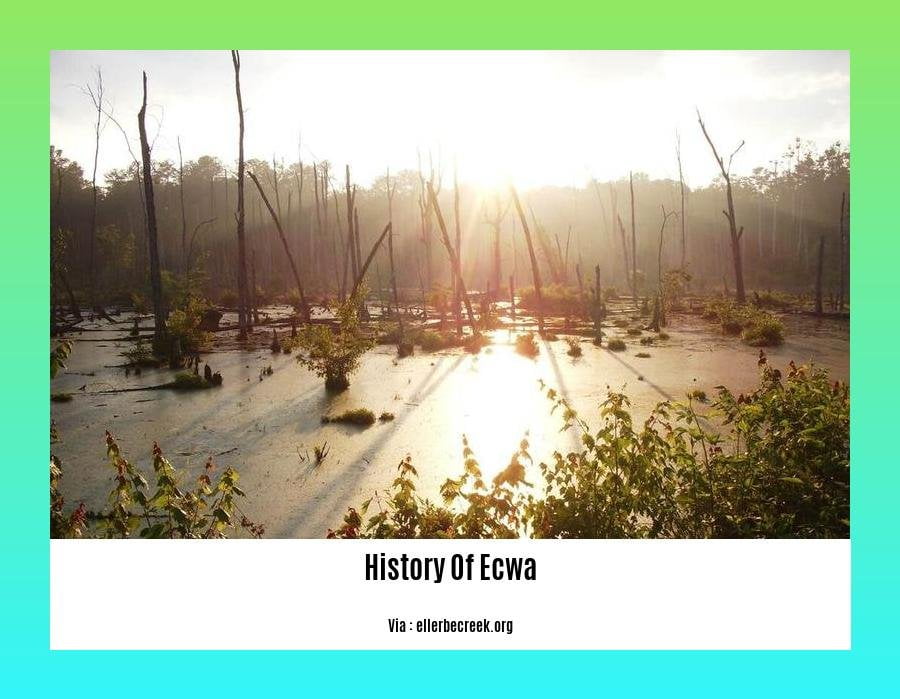
In the tapestry of Christianity in Nigeria, the history of ECWA stands as a testament to faith, unity, and the relentless pursuit of spreading the gospel. The Evangelical Church Winning All (ECWA), a beacon of spiritual awakening, emerged in 1954 from the fusion of SIM-related churches, igniting a flame that would illuminate the nation and beyond.
Humble Beginnings
The seeds of ECWA were sown in the fertile soil of mission work, where missionaries from the Sudan Interior Mission (SIM) tirelessly sowed the seeds of faith across the vast expanse of Nigeria. These dedicated individuals encountered receptive hearts and eager minds, laying the foundation for what would become a formidable force in the Christian landscape.
Unity in Diversity
The formation of ECWA marked a pivotal moment in Nigerian Christianity, as various denominations and mission churches united under a shared vision of spreading the gospel to every corner of the nation. This remarkable unity, transcending ethnic and linguistic barriers, demonstrated the transformative power of faith to bridge divides and forge a common purpose.
Expansion and Growth
With unwavering commitment and divine guidance, ECWA embarked on a remarkable journey of growth, establishing congregations across Nigeria and beyond. From a humble beginning in the northern part of the country, the church’s influence spread like wildfire, capturing hearts and transforming lives, leaving an indelible mark on the spiritual landscape of the nation.
Educational Endeavors
Recognizing the importance of education in nurturing faith and equipping the next generation of leaders, ECWA established a network of educational institutions. These institutions, including theological seminaries, Bible colleges, and training institutes, became beacons of knowledge, providing a holistic education that shaped minds, hearts, and destinies.
Missionary Zeal
Fueled by a deep sense of使命, ECWA wholeheartedly embraced the Great Commission, establishing the Evangelical Mission Society (EMS) as a vehicle to spread the gospel to the farthest corners of the world. With over 2,000 missionaries deployed to various countries, ECWA’s impact extended beyond national borders, igniting spiritual revival and transforming communities across continents.
Throughout its remarkable journey, ECWA has remained steadfast in its commitment to the gospel, adapting to changing times while preserving its core values and unwavering faith. As it continues to grow and evolve, the history of ECWA stands as a testament to the transformative power of faith, unity, and the relentless pursuit of spreading the gospel.
Explore the rich history of East Africa with our comprehensive O-Level notes, delving into the region’s past and shaping its present.
history of east africa o level notes
Discover the fascinating history of Eastern Samar, a province in the Philippines, known for its natural wonders and cultural heritage.
history of eastern samar
Uncover the captivating history of El Nido, Palawan, a breathtaking destination renowned for its stunning beaches, majestic cliffs, and rich biodiversity.
history of el nido palawan
Expansion and Church Planting: The strategic efforts and challenges encountered in spreading ECWA’s reach throughout Nigeria and beyond, establishing new congregations and planting churches
In its relentless pursuit of spreading the gospel and establishing a strong Christian presence across Nigeria and beyond, ECWA has embarked on bold and strategic church expansion and planting initiatives. These efforts have been marked by both notable achievements and challenges. Let’s delve into the strategies and obstacles encountered in this remarkable journey.
Evangelizing New Territories:
- Planting Seeds of Faith: ECWA members have championed the cause of church planting, venturing into new territories and establishing congregations in previously unreached areas.
- Strategic Partnerships: Collaboration with other Christian organizations and international missions has facilitated the planting of new churches, fostering unity and reaching diverse communities.
Challenges in the Path:
- Cultural and Linguistic Barriers: Navigating cultural differences and linguistic diversity has presented obstacles to effective communication and integration within new communities.
- Resource Constraints: Limited financial resources and the need for skilled personnel have hindered the establishment of sustainable churches in remote and challenging regions.
Overcoming Obstacles:
- Training and Equipping Leaders: To address the shortage of skilled personnel, ECWA has invested in training and equipping local leaders, empowering them to effectively shepherd and lead new congregations.
- Collaborative Ministry: ECWA has sought partnerships with local churches and organizations, leveraging their resources and expertise to support church planting initiatives.
Key Takeaways:
- Church planting serves as a cornerstone strategy for ECWA’s mission to spread the gospel and establish a strong Christian presence in new territories.
- Strategic partnerships and collaborations with other Christian organizations have facilitated the planting of new churches and fostered unity within diverse communities.
- Challenges such as cultural and linguistic barriers, as well as limited resources, have hindered ECWA’s efforts to establish sustainable churches in remote and challenging regions.
- ECWA’s commitment to training local leaders and collaborating with local churches and organizations has played a crucial role in overcoming obstacles and ensuring the success of church planting initiatives.
Citations:
9 Challenges To Church Planting
A Case Study of Church Growth by Church Planting in Germany: Are They Connected?
Social and Community Impact: The multifaceted contributions of ECWA in promoting literacy, education, healthcare, and community development, improving the lives of countless individuals
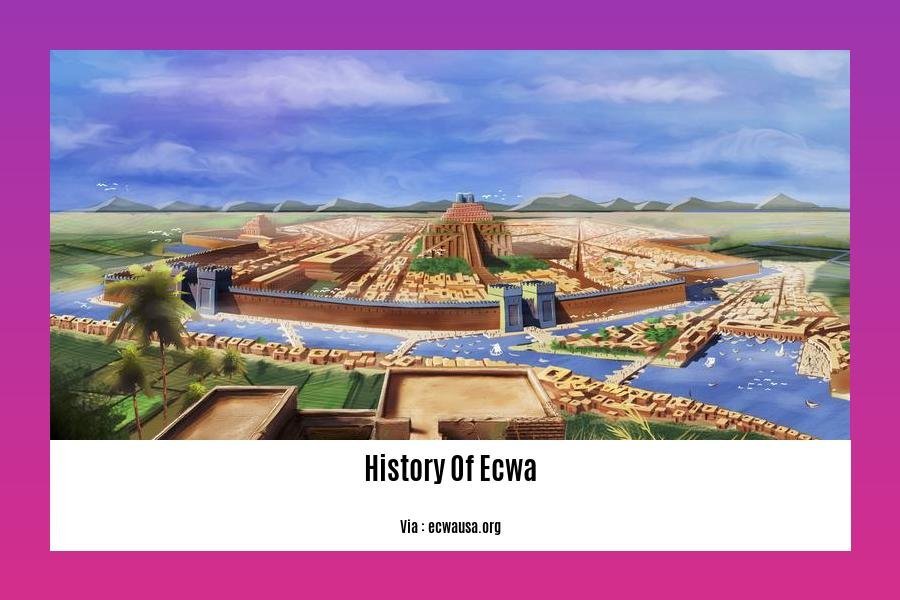
ECWA, a beacon of faith in Nigeria, has left an indeliable mark on the nation’s social fabric, reaching far beyond the confines of its church walls. Through its unwavering commitment to community development and the well-being of its members, ECWA has woven itself into the tapestry of Nigerian society, transforming countless lives.
Literacy and Education: Lighting the Path to Enlightenment
ECWA’s dedication to education shines brightly, illuminating the path to knowledge and opportunity for countless Nigerians. The church has established a network of schools, from primary to secondary levels, providing access to quality education in underserved communities. These institutions, guided by the principles of academic excellence and spiritual growth, have nurtured generations of leaders, professionals, and change-makers.
Healthcare: Nurturing the Body and Soul
ECWA’s commitment to healthcare extends healing hands to those in need. The church operates a network of clinics and hospitals, selflessly providing medical care to communities often lacking access to these essential services. These facilities, staffed by dedicated healthcare professionals, offer a lifeline of compassion, alleviating suffering and promoting well-being.
Community Development: Empowering Transformation
ECWA’s impact extends beyond the realm of education and healthcare. The church actively engages in community development initiatives, addressing pressing social issues and fostering sustainable progress. These projects, ranging from water provision to vocational training, empower communities to take ownership of their development and improve their quality of life.
Key Takeaways:
ECWA’s social and community impact is deeply rooted in its commitment to education, healthcare, and community development.
The church has established a network of schools, clinics, and hospitals, providing access to quality education and healthcare services in underserved communities.
ECWA’s community development initiatives empower communities to address pressing social issues and achieve sustainable progress.
The church’s multifaceted contributions have transformed countless lives, improving the well-being of individuals and communities.
[Sources]
– The Role of the Church in Community Development: A Case Study of the Evangelical Church Winning All (ECWA) in Nigeria
- The Impact of ECWA on the Socio-Economic Development of Nigeria
Modern Developments and Current Status: Navigating contemporary challenges, adaptations, and initiatives that define ECWA’s role in contemporary Nigerian society and beyond
ECWA, a beacon of faith in Nigeria, has not remained static in the face of evolving challenges and opportunities. In recent years, the church has undertaken several initiatives and adaptations to maintain its relevance and impact in society:
Addressing Contemporary Social Issues: ECWA has delved into addressing contemporary social issues, such as poverty alleviation, education, healthcare, and gender equality. It has established various programs and partnerships to support marginalized communities, empower women, and promote access to healthcare and education.
Expanding Evangelism and Missions: Recognizing the changing religious landscape, ECWA has intensified its evangelistic efforts, both within Nigeria and beyond. It has established new churches, strengthened existing congregations, and launched mission projects in new regions, contributing to the growth of Christianity across the nation and internationally.
Engaging in Interfaith Dialogue and Peacebuilding: In response to the increasing religious tensions and conflicts in Nigeria, ECWA has actively engaged in interfaith dialogue and peacebuilding initiatives. It promotes peaceful coexistence, fosters understanding among different faiths, and collaborates with other religious organizations to address issues affecting society, such as poverty, education, and healthcare.
Leveraging Technology for Outreach and Discipleship: ECWA has embraced technology to enhance its outreach and discipleship efforts. It utilizes social media platforms, online streaming services, and mobile applications to connect with believers, share messages, and provide spiritual guidance. This approach enables the church to reach a wider audience, especially the younger generation.
Empowering Women and Youth: Recognizing the potential of women and youth in shaping the future of the church, ECWA has prioritized their empowerment. It has established programs and initiatives to encourage women’s participation in leadership roles, promote gender equality, and equip young people with skills and knowledge to contribute positively to society.
Adapting to Climate Change and Environmental Stewardship: In response to the pressing challenges of climate change and environmental degradation, ECWA has embraced sustainability practices and promoted environmental stewardship. It encourages its members to adopt eco-friendly lifestyles, supports community-based environmental projects, and advocates for policies that protect the environment.
Cultivating Ecumenical Partnerships: ECWA has strengthened its relationships with other Christian denominations and organizations. Through ecumenical partnerships and collaborations, the church engages in joint initiatives, such as community development projects, interfaith dialogue, and theological education, fostering unity and cooperation among different Christian communities.
Key Takeaways:
ECWA’s commitment to addressing contemporary social issues demonstrates its holistic approach to ministry, aiming to bring transformation not only in spiritual matters but also in the social and economic well-being of communities.
The church’s focus on expanding evangelism and missions reflects its unwavering commitment to the Great Commission, reaching out to new regions and diverse populations with the message of salvation and discipleship.
ECWA’s involvement in interfaith dialogue and peacebuilding showcases its commitment to promoting peaceful coexistence, understanding, and collaboration among different faiths, contributing to a more harmonious society.
The church’s embrace of technology for outreach and discipleship demonstrates its ability to adapt to evolving communication trends and engage with a wider audience, especially the tech-savvy generation.
ECWA’s emphasis on empowering women and youth reflects its understanding of the vital role they play in the church’s present and future, ensuring their active participation and leadership.
The church’s commitment to environmental stewardship and sustainability reflects its concern for the well-being of both the physical and spiritual realms, advocating for responsible practices and promoting environmental protection.
ECWA’s cultivation of ecumenical partnerships strengthens its ties with other Christian communities, fostering unity, cooperation, and joint initiatives that contribute to the broader Christian witness in Nigeria.
Sources:
– ECWA’s Role in Addressing Contemporary Social Issues in Nigeria
– ECWA’s Commitment to Evangelism and Missions
FAQ
Q1: What was the original name of ECWA, and when was it founded?
A1: ECWA was initially known as the Evangelical Church of West Africa and was founded in 1954.
Q2: How did ECWA come into existence?
A2: ECWA was formed through the union of SIM-related churches in Nigeria, uniting various congregations under a single banner.
Q3: What is the significance of ECWA’s partnership with SIM?
A3: ECWA’s partnership with SIM, formerly known as Sudan Interior Mission, has played a crucial role in the church’s growth and development, providing support and collaboration in various areas.
Q4: How has ECWA contributed to education in Nigeria?
A4: ECWA has established numerous educational institutions, including theological seminaries, Bible colleges, and theological training institutes, demonstrating its commitment to educating and training individuals for ministry and leadership roles.
Q5: What is ECWA’s focus when it comes to missions and evangelism?
A5: ECWA has a strong emphasis on evangelism and missions, with its Evangelical Mission Society (EMS) actively sending out missionaries to various parts of the world, fulfilling the church’s commitment to spreading the gospel beyond its borders.
- HelpCare Plus: Revolutionizing Affordable and Accessible Healthcare - December 29, 2024
- Boom & Bucket: Your Digital Marketplace for Used Heavy Equipment - December 28, 2024
- Ankle Bones Crossword Clue: Solutions, Tips & Anatomical Insights - December 28, 2024
